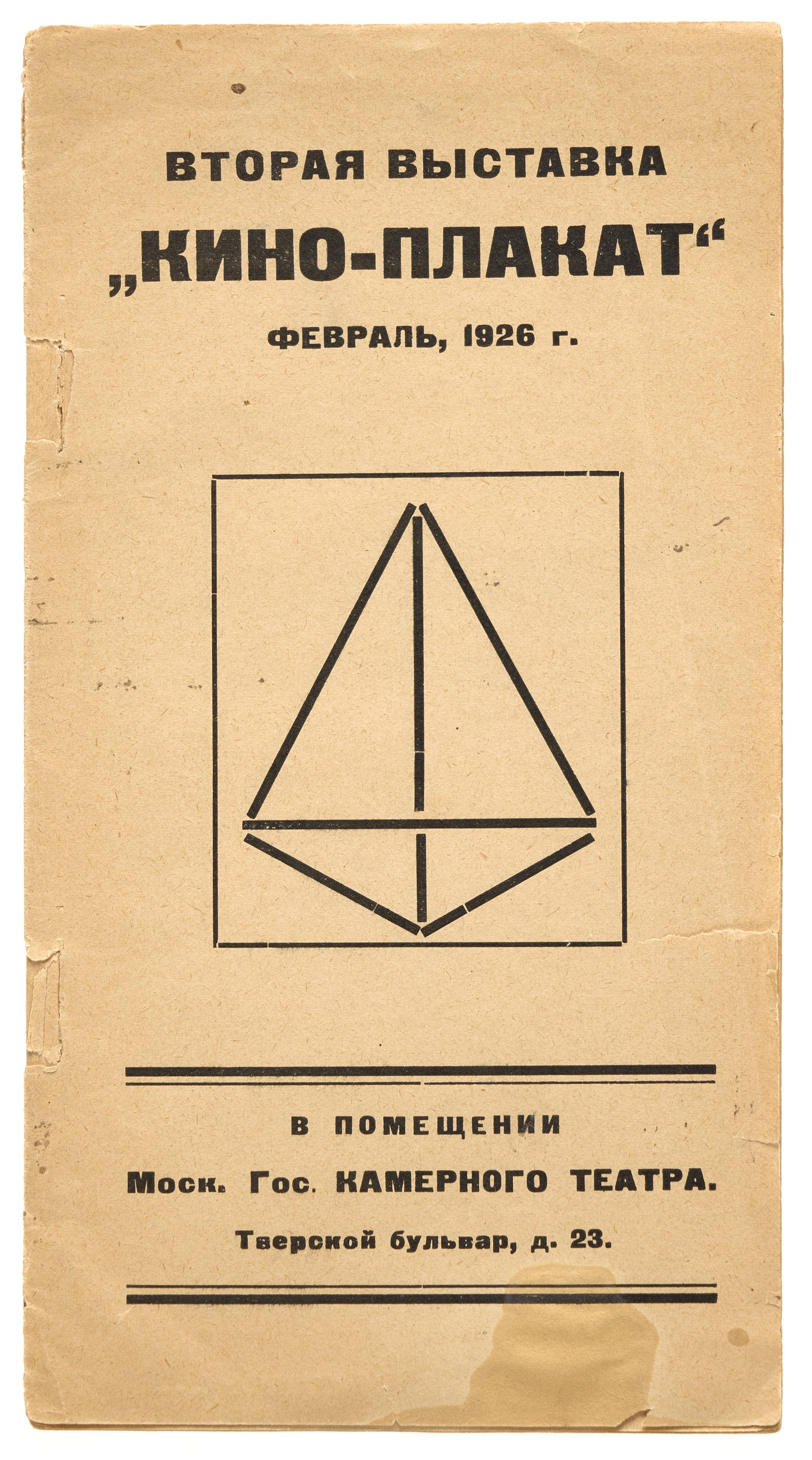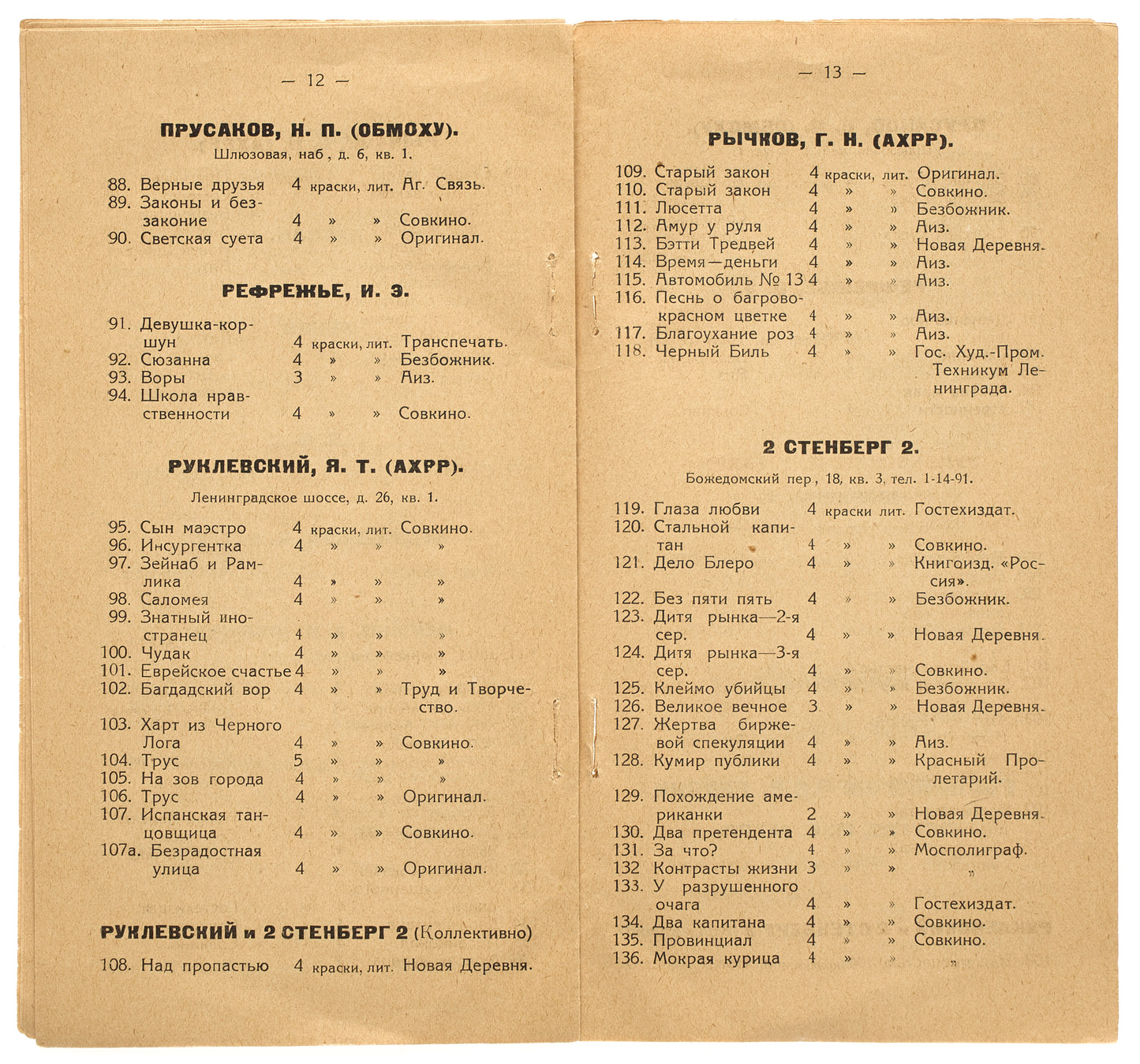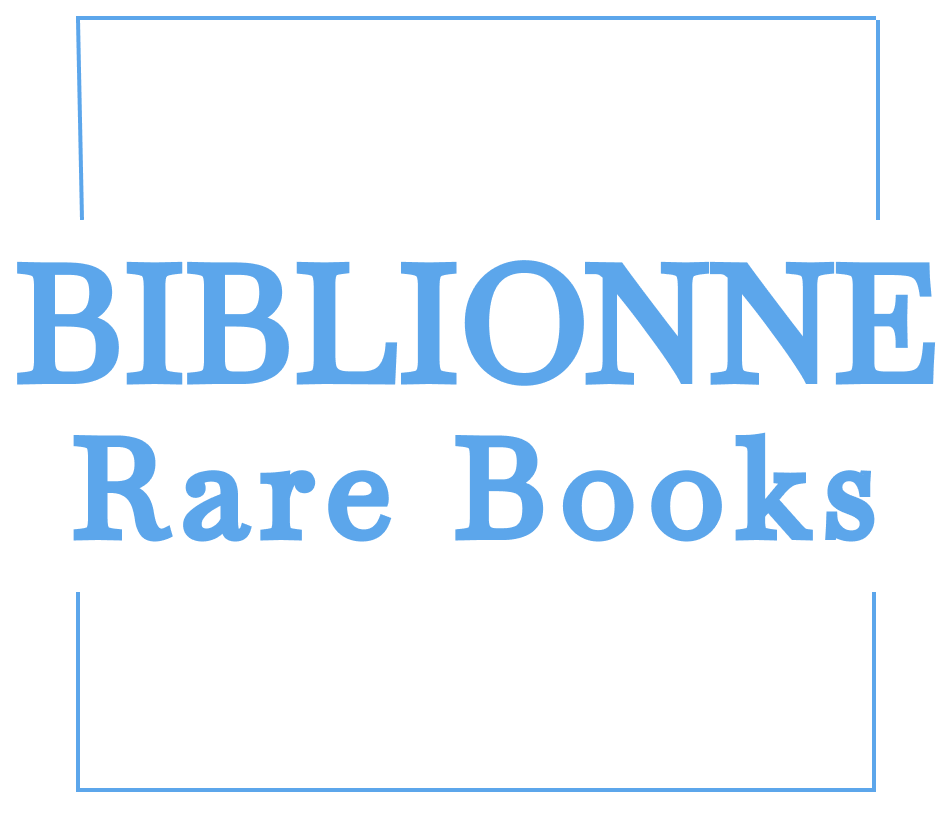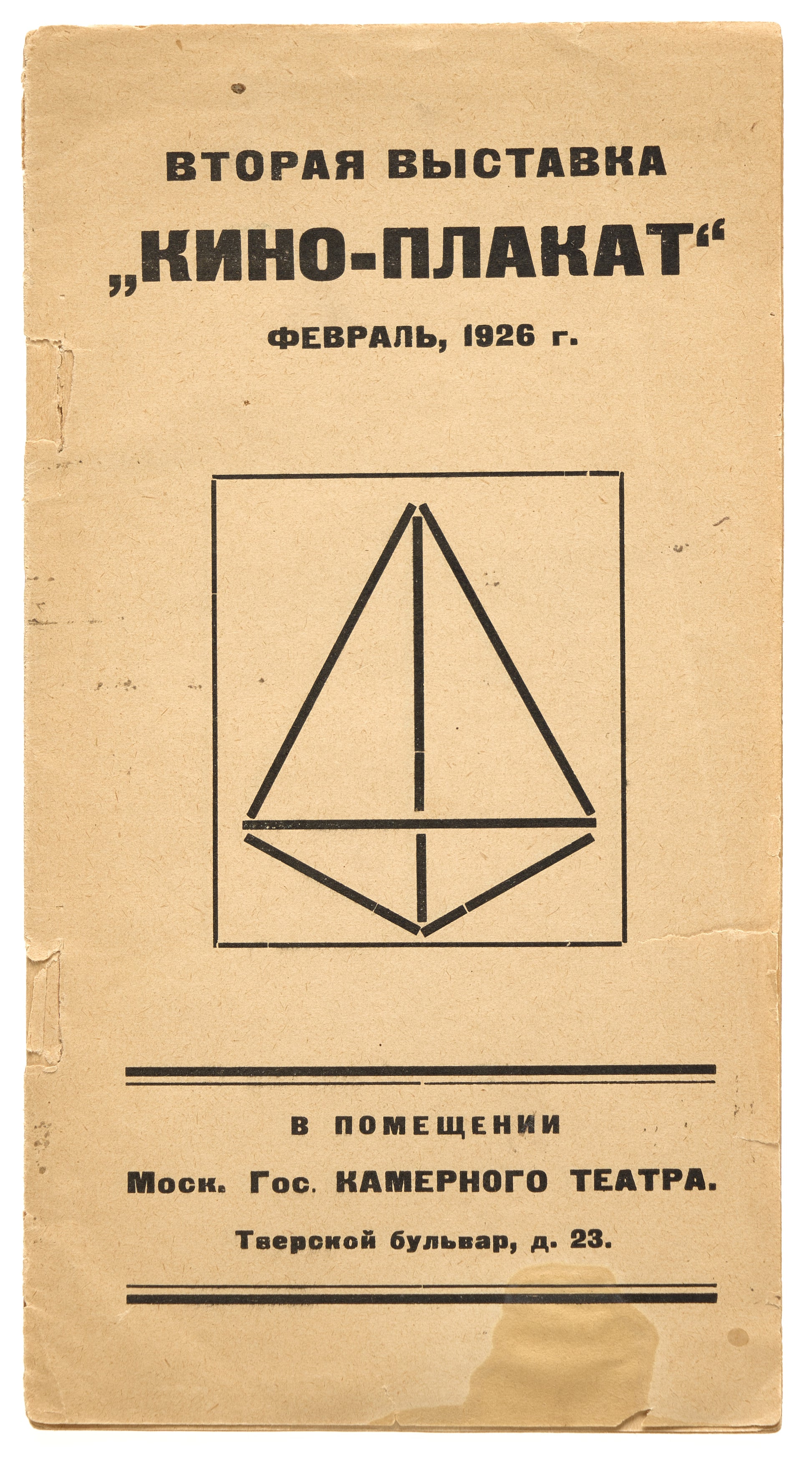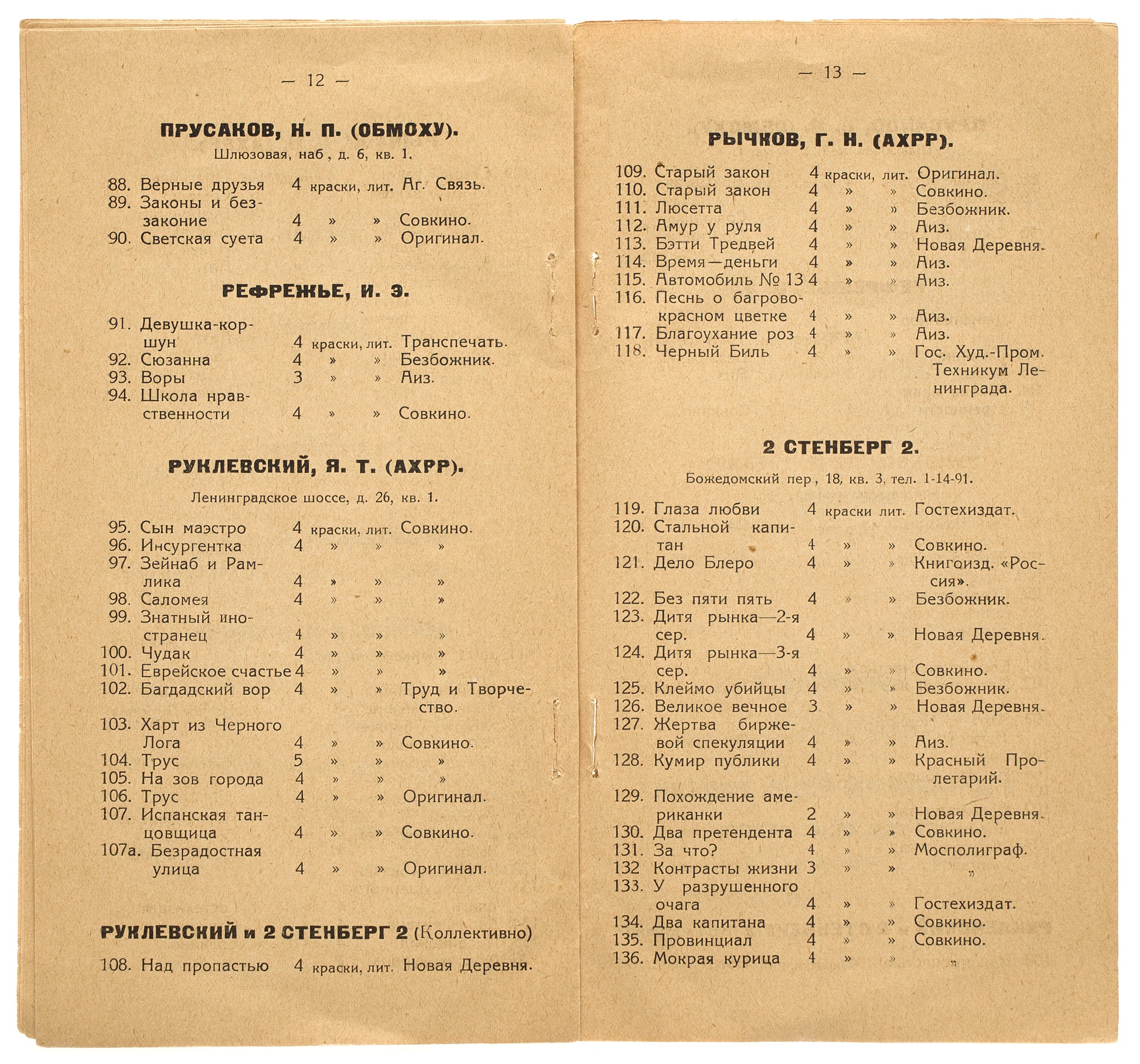Second Exhibition of 'Cinema Posters'. Rare exhibition catalog with Stenberg Brothers' posters.
Second Exhibition of 'Cinema Posters'. Rare exhibition catalog with Stenberg Brothers' posters.
Couldn't load pickup availability
[Second Exhibition of 'Cinema Posters'. February 1926]. Vtoraia Vystavka “Kino-Plakat”. Fevral’, 1926 g.
[Moscow], Izd. Buro Vystavki, [1926].
8vo, 18 pp.
In original wrappers.
In good condition, small tears and losses to cover edges and spine, small stain to front cover, original staples were detached.
Very rare. The exhibition showcased the Stenberg Brothers' movie posters for the first time. One of 5 000 copies published.
In 1922, Vladimir Lenin famously declared, '...of all the arts, for us, cinema is the most important'. Following the nationalization of the film industry in 1919, the first state-owned film company, Goskino, was established in 1922 and renamed Sovkino in 1924. The advertising department, Reklam Film, managed the design, approval, and distribution of posters for both foreign and Soviet films throughout the Soviet Union. Yakov Ruklevsky, the head of Reklam Film, enlisted talented young artists such as the Stenberg brothers—Vladimir and Georgii—who created movie posters from 1923 until Georgii's untimely death in 1933. Christopher Mount highlighted their impact, noting that they 'organized the First Exhibition of Film Posters in Moscow in 1925' (Stenberg Brothers: Constructing a Revolution in Soviet Design. New York: MoMA, 1997). However, their posters were not featured in that exhibition, as indicated in the exhibition typescript catalogue held at the Russian State Archive of Literature and Art.
The second exhibition of movie posters was inaugurated at the Moscow Chamber Theatre on February 1, 1926. Participating artists included Nathan Altman, Vladimir and Georgii Stenberg, Alexander Rodchenko, Anton Lavinsky, Iosif Gerasimovich, Yakov Ruklevsky, and many others. Notably, Rodchenko and Lavinsky's renowned posters for Eisenstein's 'Battleship Potemkin', which have become iconic examples of Russian Constructivist movie posters, were also on display.
We couldn't trace any copy of this edition in the USA or European libraries via OCLC.
